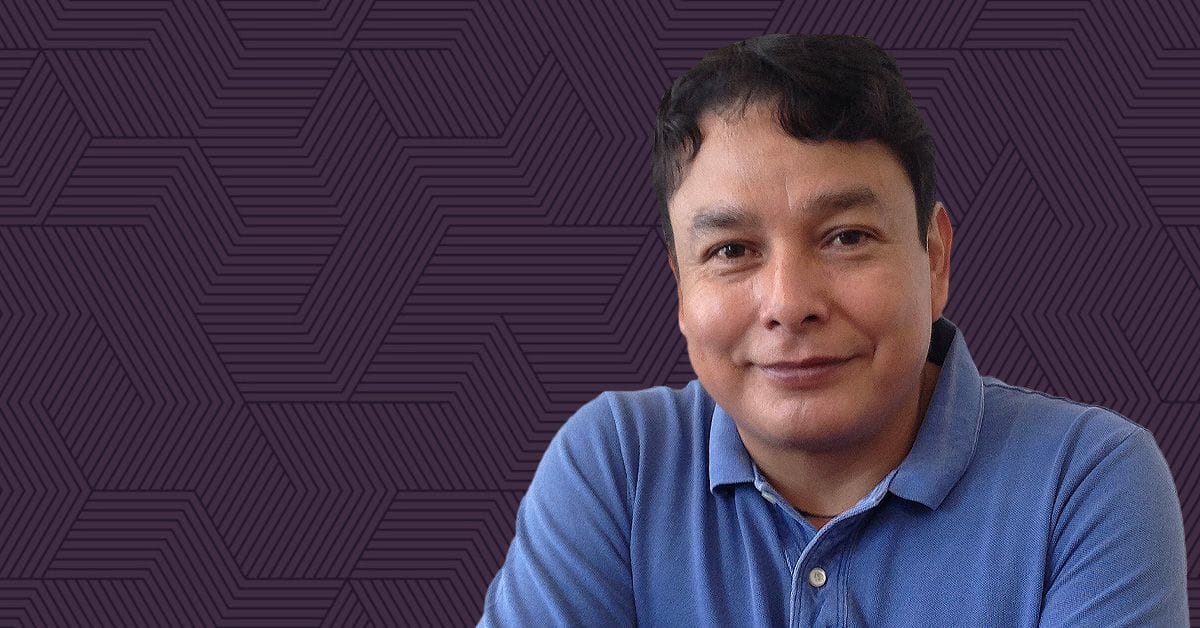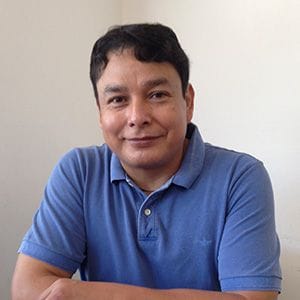In this interview, Professor Piscil discusses his latest research and the steps he took to publish his team's newest paper open access in an ACS journal.

As part of an ongoing series here on ACS Axial, we’re interviewing authors and librarians from around the world to find out more about their research, their published work, and the impact that open science is having on a changing landscape of research communication. This time, we talked with Fernando Sartillo Piscil, Professor of Organic Chemistry at Benemérita Universidad Autónoma de Puebla (BUAP), Mexico.
I think [open access] is the best idea for publishing research, because knowledge can be freely disseminated without any restrictions on who can access it.

Hello, Prof. Piscil—could you tell us a little about yourself and your current research focus?
Our current focus is the C-H functionalization of N-heterocycles. This is sometimes called molecular editing, but in my lab's case we are focused on performing this chemical transformation under transition metal-free conditions.
You published a paper with ACS in early 2024, "β-Alkenylation of Saturated N- Heterocycles Via a C(sp3)O Bond Wittig-Like Olefination." How would you summarize that for someone unfamiliar with the area?
This paper is about a novel take on a classical chemical transformation: the Wittig reaction. This kind of chemical transformation is dependent on the reaction between carbonyl groups and phosphorus ylides, but we visualized a way to form the carbonyl group from a single C-O bonds through a tandem process; this is why we called a Wittig-like olefination. To the best of our knowledge, this is the first report of a double C=C bond formation as a result of a C-O Wittig-like reaction which enabled us to functionalize N-heterocycles at the C3 position and applied to the total synthesis of a natural product.
Your article was published inthe Journal of Organic Chemistry. How did you find the experience?
It was amazing! The experience was very professional, as always. This is the 20th paper I have published in the Journal of Organic Chemistry, and each time has been very professional. From the very beginning, the first contact with the editor and associate editors, and the referees, everything has been perfect. I would say that JOC has been the best journal to publish my research in, by far.
The article was published under your institution's read and publish agreement with ACS—how did you find out that this was available?
Actually, the production team let me know that I could use this option to disseminate my research more widely. I was surprised as I thought open access needed authors to pay, but they told me that my institution has a special agreement with ACS.
What are your thoughts on open access?
I think this is the best idea for publishing research, because knowledge can be freely disseminated without any restrictions on who can access it.
Without open access, I think science would be the same as it was 50 years ago - but now, there's so much data and research that anyone can access for free, and with the right knowledge and equipment anyone can be a scientist. That may be a little idealist, but I think now everybody can be a scientist.
What are your thoughts on open science more generally?
I don't have any experience with open science beyond open access. But I do know that times have changed and that it feels necessary to increase public access to research and the transparency of the editorial process.
Sometimes we as authors may not be comfortable with the resolution of reviewers and editors, but I think this is a big opportunity to make processes more transparent.
Where do you see the open science movement in 10 years' time?
I think open access is a very good thing, and I think science would be better for everyone if readers had access to more research without barriers. I hope that more research would be freely available to read in ten years' time.
Finally—what do you think you'd be doing if you weren't a researcher?
I'm not sure! I like heavy metal and death metal, and play guitar—I have mine right here with me now! If I wasn't a scientist, I like to think I would be the lead singer or guitarist in a heavy metal band.
Check out the other interviews in this series:
Ian Cousins, Stockholm University
Hongxia Duan, TU Eindhoven
Vojtěch Vaněček, Institute of Physics, Czech Academy of Sciences
Louise Otting, TU Delft
Kristine Horvat, University of New Haven
David W. McCamant, University of Rochester
Lillian Chong, University of Pittsburgh
Sue Cardinal, University of Rochester
Rubén Mendoza-Cruz, Universidad Nacional Autónoma de México
Alison Bradley, Partnership for Academic Library Collaboration and Innovation
Vesna Srot, Max Planck Institute for Solid State Research
Matt McDowell, Georgia Institute of Technology